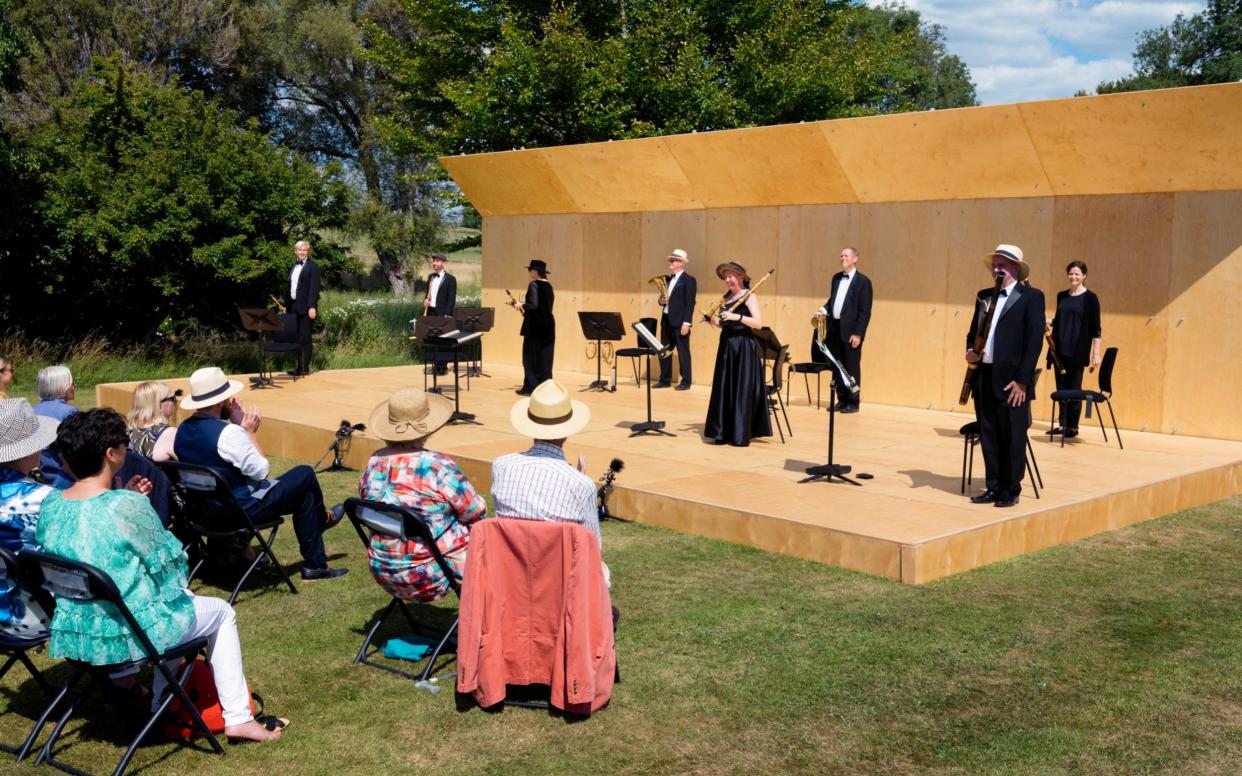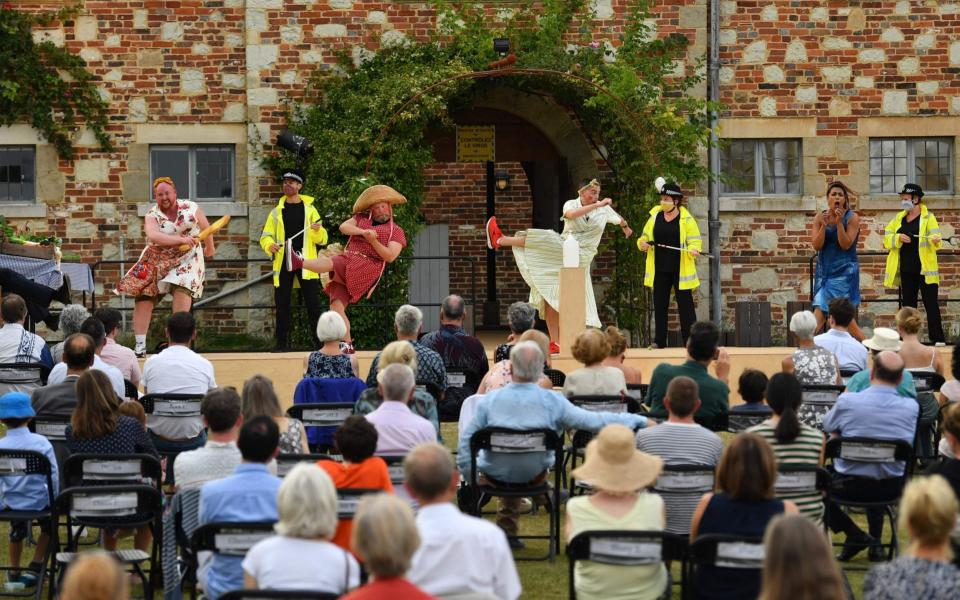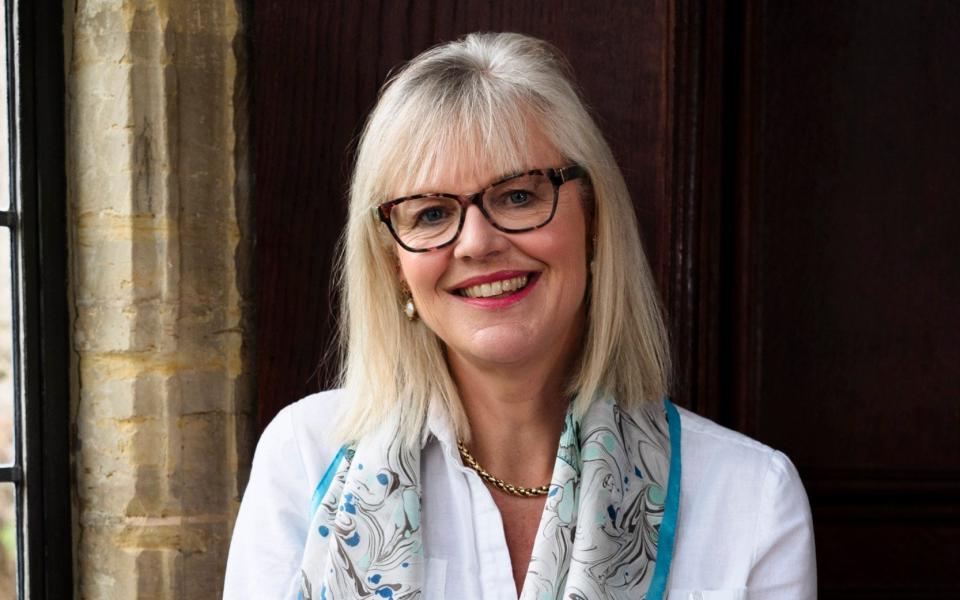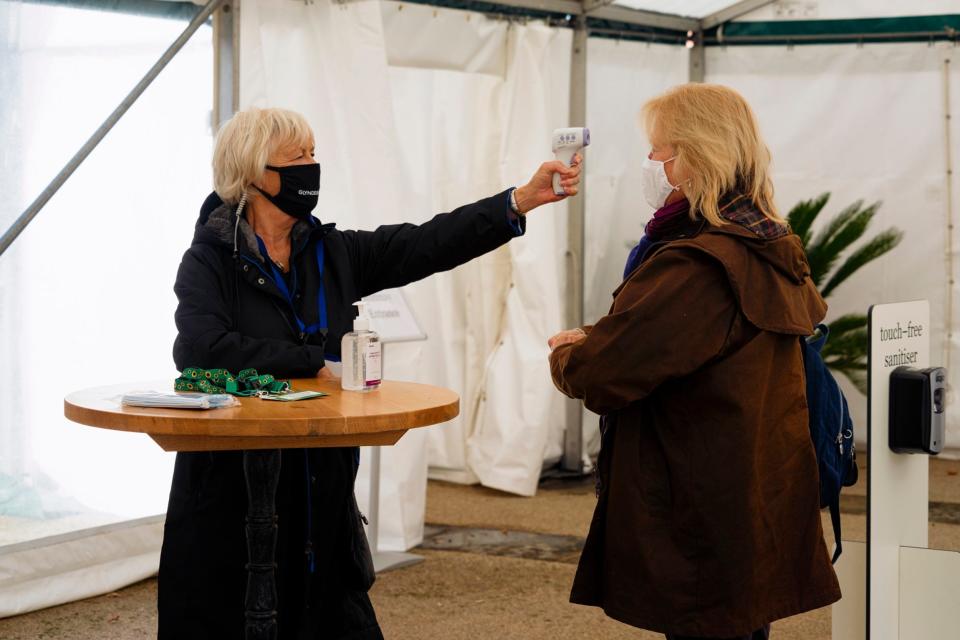‘Our members saved us’: how Glyndebourne’s loyal patrons helped plug a £7 million hole

The recent news about an imminent vaccine rollout is “an extremely promising development,” says Sarah Hopwood, managing director of Glyndebourne. “For us, and for the arts in general, it’s critical from every angle.
“It helps ensure we can rehearse safely, given the huge artistic forces needed to put on an opera. It gets freelancers back to work, which is crucial with the current freelance crisis. And it ensures that our audience is safe and we can fill the house.”
That latter part is vital for Glyndebourne’s coffers. “We’ve just increased our capacity from 350 to 500 - which is still less than half the house - for our Christmas shows.” Those include a festive concert and seven hastily rescheduled performances of The Magic Flute, which opened on 1 November, closed for the second lockdown, and is now returning. It’s a semi-staged production, performed in front of the orchestra - since the musicians can’t fit, socially distanced, in the pit.
But, despite various ingenious solutions, including a virtual festival in place of Glyndebourne’s usual summer offering and socially distanced performances held outside, it’s been “an absolutely devastating year,” admits Hopwood. “We’ve lost millions of pounds - over £7 million in cash outflow. The festival usually supports our year-round work.”
The saving grace has been the “unbelievable loyalty from our members. When we had to cancel our summer festival, 45 per cent of them converted the money they’d paid for tickets into a donation to our Covid emergency fund. That meant we could pay every single freelancer and seasonal member of staff who had lost that work.”

The loyalty also extended to keeping on those memberships. “We had our membership renewal this autumn, and I was afraid lots of people would cancel after not getting to see live shows this year. Instead, the vast majority renewed.”
In addition to that salvation from members, Glyndebourne was already in a better position than many arts organisations. “Foot-and-mouth disease was our crisis in 2001. It was a genuine threat: our reserves were minimal at the time, and we get no public funding. If that festival had been cancelled, we probably wouldn't have reopened our doors. We vowed never to be in that position again.
“So, that was the start of working really hard to build up our reserves - and becoming lean and mean. It’s stood us in very good stead. Financial prudence cannot be the responsibility of one person. Every single member of staff has contributed. It means we can have creative aspirations, but make it affordable long term.”
They were fortunate, too, in that their reserves were “particularly healthy this year, since we were about to go into a period of capital investment - replacing the whole backstage system.” Glyndebourne was ineligible for the Culture Recovery Fund, “on the grounds that we wouldn’t go bust by March without the funding. But we did use the government’s Coronavirus Business Interruption Loan Scheme. That was a big help.”
Private donors are also a vital source. “Generally, 25 per cent of our income comes from predominantly individuals giving money. We’re relying on that generosity again.”

Next year, assuming the vaccine rollout goes smoothly, says Hopwood, “we’ll need to start to rebuild our sustainable business model for the future. But it all depends on what the government announces in terms of social distancing. Of course, we’re doing lots of scenario planning, for various eventualities.”
The best-case scenario is that next year’s summer festival can be “business as usual. We would normally be going on sale for that now. But we can’t yet, because we don’t know how many tickets we can sell. That means, instead of the usual £10 million coming in in the next six weeks, there’s nothing.”
Would Hopwood like to see the capacity cap of 1,000 or 50 per cent, an unpopular part of the government’s new tier system, relaxed? “I do understand the reasons for it. But no venue is financially viable with those caps. We budget on the basis of a 95 per cent cash take from the festival, to fund all our other activities. I don’t think 95 per cent is realistic for next year, but we need to get back to that model. The enforced capacity cap of 600 - which is 50 per cent capacity for us - is nowhere near what it needs to be.”
Hopwood does feel “more confidence” about the vaccine giving the government “reassurance to reduce social distancing and get us back to full capacity.”

What about audiences - particularly the older, potentially at-risk patrons? Might they be worried? “I do know people are hungry for live theatre. But we understand the health concerns too. We’re lucky to have large, beautiful gardens, meaning there’s lots of space. If people are uncomfortable sitting in the restaurants, they can bring a picnic and sit at the far end of the lake.”
However, Hopwood thinks they’ll err on the side of caution - well beyond government restrictions. “Even if there are no formal social distancing measures in place when we open next May, we will still be encouraging people to be respectful of others, to keep their distance. There will be lots of hand sanitiser around. It’s not just about being safe, but feeling safe.”
One welcome development is the government exempting arts professionals from quarantine when they enter the UK, a rule change that took effect from last weekend. However, there is no guarantee that the rule won’t change back again if cases spike. Hopwood hopes that their artists, “who are coming from all over the globe, will be able to travel here for the next festival and not get caught up in lockdowns or quarantine.”
What happens if a performer does get stuck? “It’s hard to find understudies here at short notice, because of our location, so we do rehearse covers for every role - it’s a whole development programme. We’ve got a backstop.”
The plan is to start rehearsals on 8 April for the first two shows. The season opener is Janáček’s passionate tragedy Kát’a Kabanová, directed by Damiano Michieletto and starring Czech soprano Kateřina Knĕžíková. Hopwood thinks it’s an irresistible proposition.

The programme - planned pre-Covid - is “the balance we always try to strike between well known and lesser known, new work and returning favourites." That includes Rossini's Il turco in Italia, Verdi's Luisa Miller, Mozart's Così fan tutte, and a revival of Nikolaus Lehnhoff’s acclaimed production of Wagner's Tristan und Isolde. "Even if social distancing isn’t relaxed altogether, we hope we can still rehearse and work towards fuller audiences.”
Being back in the auditorium for the semi-staged Magic Flute, “making live music, has been thrilling,” says Hopwood. “We had about 13 performances before lockdown and everyone reported feeling safe. It was surprisingly emotional too.”
What lessons have they learned from a challenging 2020? “It normally takes four years to plan an opera - we’ve done it in six weeks! So it proves we can all be more flexible, which is good for us and for the industry. The live programme from our education department had to be cancelled, but we did lots online, and we stood in people’s gardens to sing. We’re also thinking about how to engage year-round with those communities where we tour, in a virtual way - we’re usually there for a week and gone again.
“Our online summer festival showed the appetite for opera in that form - we had hundreds of thousands of views across the season. It was good for our age profile too. Taking a child to a three-hour opera is a big risk, but having it on in the living room, where they can come in and out, is a good introduction. The virtual never replaces live, but it’s a great add-on.
“We’ve been having constructive conversations with freelancers too. We’re so dependent on each other - there has to be transparency and respect. The same with our community here. There’s usually £18 million generated from Glyndebourne into the local economy, and we have an interdependence with them. So we’ve been doing art exhibitions of local Sussex artists online, which has done really well. We have a responsibility to all of those relationships that make Glyndebourne a success.”

